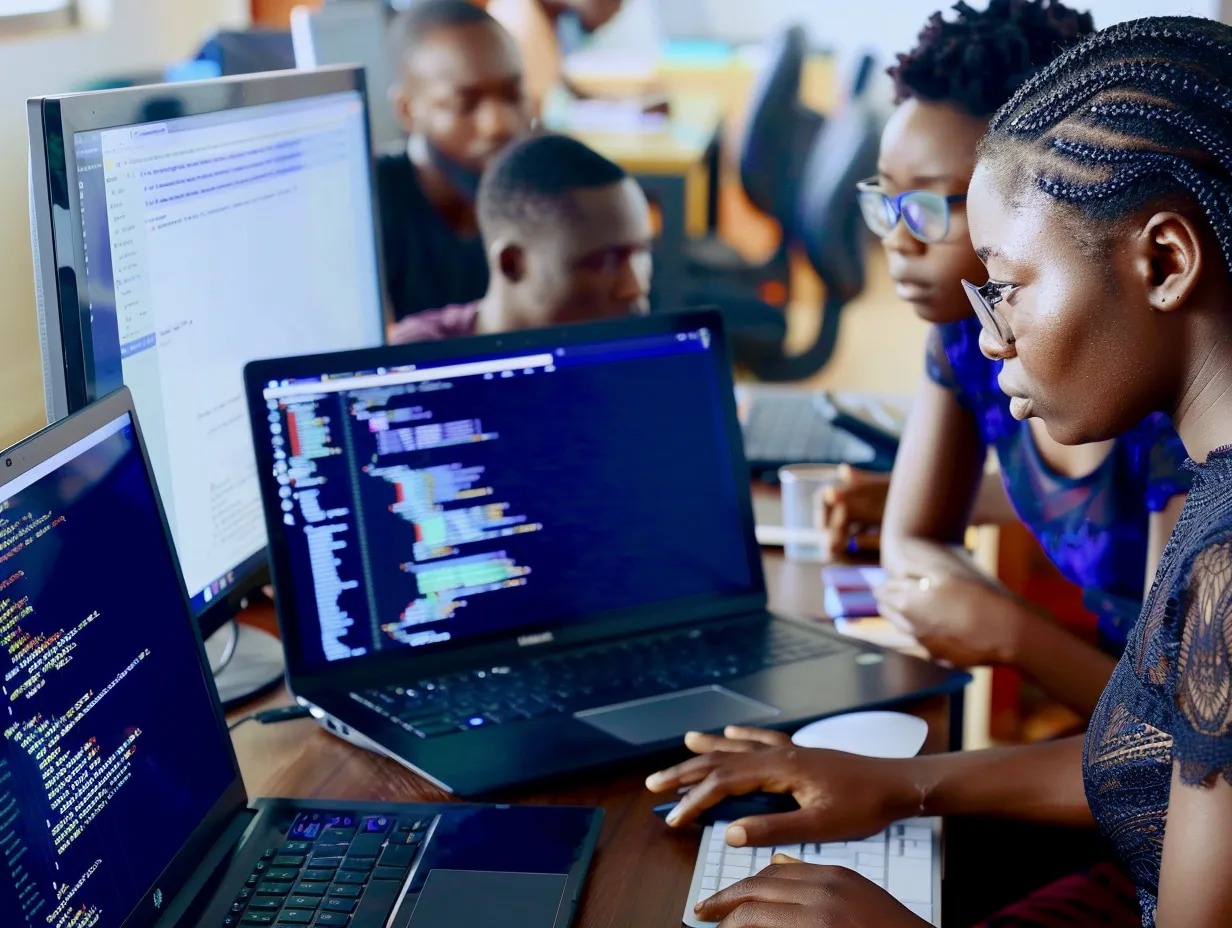The latest International Monetary Fund (IMF) Artificial Intelligence Preparedness Index shows a mixed picture for Africa. Out of the more than 50 countries on the continent, only seven have preparedness indexes of 0.4 and above.
Also Read: Tinder launches AI-powered photo selector to enhance user profiles
South Africa has the highest index score of 0.5, while Tunisia comes second with a score of 0.47. With a score of 0.45, Kenya stands at the third position. The two countries, Morocco and Ghana, are in fourth place with a score of 0.43. Namibia and Botswana follow with scores of 0.42 and 0.41, respectively.
Most African nations fall within the average preparedness range
Notably, Nigeria, the largest economy in Africa, has an AI preparedness score of 0.34, which falls within the bracket of 0.2 to 0.4. The Republic of South Sudan has the lowest score of 0.11, and the Central African Republic has a score of 0.18.
The IMF index assesses AI preparedness across 174 countries, with most African nations falling within the 0.2 to 0.4 range. This aligns with the IMF’s average score for low-income countries (LIC), which stands at 0.32. Only two African countries, the Republic of South Sudan and the Central African Republic, have indices below 0.2. Globally, Afghanistan is the only other country that has a score lower than 0.2, and the score is 0.13.
The AI Preparedness Index evaluates four key dimensions: These include digital infrastructure, human capital, technological innovation, and legal frameworks. These dimensions are critical for the adoption of AI.
This data shows that most of the advanced economies have a score of more than 0.7, meaning they are well prepared for AI integration. According to the IMF, these countries’ high scores can be attributed to strong digital infrastructure, human capital, and technological improvements.
Agriculture emerges as the leading sector for AI adoption in Africa
However, the IMF also cautioned that AI may increase global inequality. Political leaders in advanced economies are urged to implement more social protection measures, fund retraining of workers, and focus on the development and adoption of AI.
“For policymakers, those in advanced economies should expand social safety nets, invest in training workers, and prioritize AI innovation and integration. Coordinating with one another globally, these countries also should strengthen regulation to protect people from potential risks and abuses and build trust in AI.”
IMF
Additionally, a new GSMA study indicates that new AI applications could increase Africa’s economic contribution by $2.9 trillion within the next ten years. The GSMA report reveals that the major areas of AI use in Africa are agriculture, climate change, and energy. These areas have more than 90 examples of AI implementations and thus remain the vanguards of technological innovations in Africa.
In Africa, agriculture is the leading sector that has adopted AI, accounting for 49% of AI applications. The sector, which on average accounts for 17% of Africa’s GDP, uses ML applications to offer information to local farmers. These AI solutions assist farmers in the implementation of sustainable farming practices and increase production efficiency.




